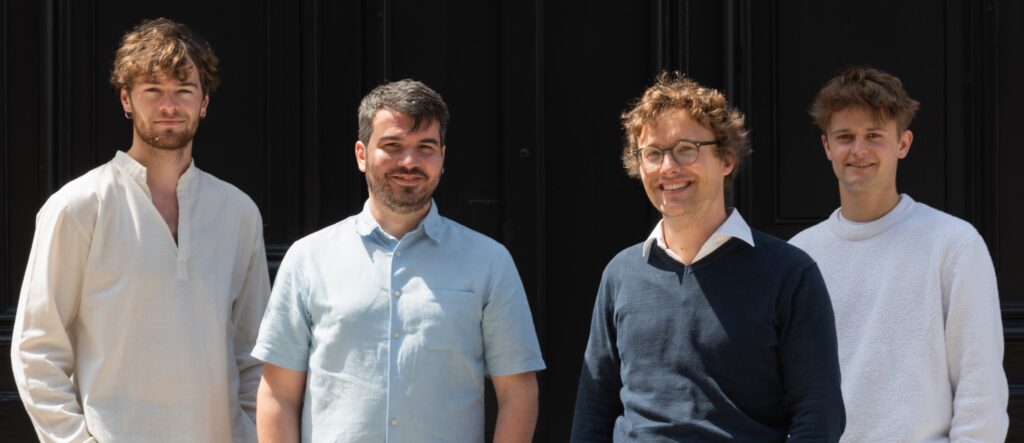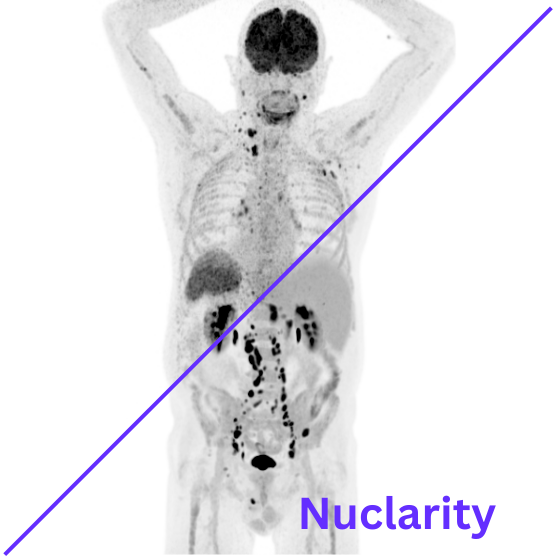Technology is revolutionizing healthcare, fueling medical innovations that drive better patient outcomes and contribute to the shift towards value-based care. From AI-powered diagnostics that enhance accuracy and speed to tele-health platforms that expand access to care, technology empowers healthcare providers to deliver more effective, efficient, and patient-centered services. By leveraging cutting-edge tools and digital solutions, the medical field is increasingly able to personalize treatments, optimize resource utilization, and ultimately improve the quality and value of care delivered to patients.
Case Study: From Space to Medical Imaging
A compelling example of technology transfer’s potential can be found in the case of Nuclivision, a Belgian startup specializing in software solutions for nuclear medicine.

Nuclivision’s team
Nuclivision is leveraging advanced AI and deep learning techniques originally developed for space imaging applications by OHB-Hellas to improve Nuclarity, their product to enhance PET (Positron Emission Tomography) scan images. 
This technology transfer enables significant reductions in scan times and radiotracer doses, while maintaining high image quality essential for accurate diagnostics. It addresses key challenges faced by hospitals and diagnostic imaging centers, such as high costs, patient risks associated with high doses of radiotracers, and long scan times.
Market Opportunity and Impact: the targeted application domain is the nuclear medicine market, focusing on PET scans used primarily in oncology, neurodegenerative diseases, and other serious conditions. The global PET scan market is estimated at $2.8billion in 2023 and is projected to reach $4.3 billion by 2030.
The envisaged impact of this technology transfer includes:
-
Cost Savings: significant reduction in radiotracer costs and operational expenses for hospitals and diagnostic imaging centers.
-
Improved Safety: lower radiation exposure for patients, leading to increased safety.
-
Increased Efficiency: faster scan times result in a 35% increase in patient throughput, improving operational efficiency.
-
High-Quality Imaging: maintains or enhances image quality, critical for accurate diagnosis and better healthcare outcomes.
The Importance of Funding: Spark Funding and Sustainable Innovation
Funding plays a critical role in enabling technology transfer and ensuring its long-term success. Verhaert is supporting this project with Spark Funding, an initiative that provides financial backing for innovative projects that leverage space technologies for terrestrial applications. This funding is crucial for bridging the gap between research and commercialization, enabling Nuclivision to develop and implement its technology, generate sustainable income streams, and achieve its goals of revolutionizing medical imaging.
Verhaert: Pioneering Technology Transfer
Verhaert Masters in Innovation is a leading player in the field of technology transfer, facilitating the adoption of innovative solutions across various sectors. Verhaert has a strong track record in supporting technology transfer initiatives for the European Space Agency (ESA) and other deep-tech sectors, such as energy fusion technology.
Through its expertise in identifying transferable technologies, connecting businesses with solutions, and facilitating technology adaptation, Verhaert is helping to unlock the power of innovation and drive economic growth.
